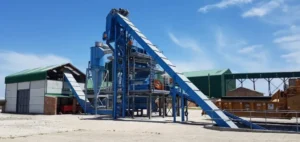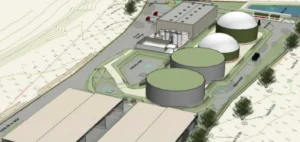Energy company Engie is to set up an alternative fuels platform at the port of Le Havre to accelerate the decarbonization of sea and air transport, the company and the government announced on Tuesday.
Engie in Le Havre: Initiatives for Decarbonized Maritime Transport
The announcement of these projects and the award of the land to Engie will be made official when Prime Minister Élisabeth Borne visits Le Havre on Tuesday, where she is due to meet Édouard Philippe, the mayor and president of the party allied with the presidential camp Horizons. Engie will deploy its Salamandre and KerEAUzen projects on a 23-hectare plot of land in the Le Havre area of Haropa, the public institution that merged the ports of Le Havre, Rouen and Paris.
With a total investment of 1.2 billion euros, “these two distinct but complementary projects aim to contribute to the establishment of a decarbonization platform for the aeronautical and maritime industries” on the Seine axis, explained Sébastien Arbola, Deputy CEO of Engie, to AFP.
Starting in 2027, the Salamandre project will supply 11,000 tonnes a year of 2nd generation bio-methane to meet the needs of shipping company CMA CGM, in a sector that is seeking to decarbonize by moving away from fuel oil and fossil gas. This renewable, low-carbon fuel will be obtained by “pyrogasification”, i.e. heating dry, currently unusable waste materials to very high temperatures and converting them into gas, in this case wood residues and solid reclaimed waste.
Le Havre commits to a sustainable future with France KerEAUzen
The other, larger project, France KerEAUzen, is valued at 1 billion euros and, following a feasibility study, should be able to supply 70,000 tonnes a year of e-kerosene (low-carbon synthetic fuel) from 2030, mainly for the needs of Air France. This fuel will be made from a combination of renewable, low-carbon hydrogen produced by a 250 MW electrolysis unit, and recycled CO2, estimated at 270,000 tonnes.
“Part of this CO2, i.e. 60,000 tonnes, will be recovered from Salamandre’s facilities”, with the remainder supplied by local manufacturers, explained Mr. Arbola.
The Prime Minister’s visit to Le Havre will be an opportunity to “illustrate the convergence of reindustrialization, regional development and ecological planning”, as Matignon put it at a press briefing.
In particular, Ms. Borne will announce a total of 23 million euros for the three universities in Normandy, winners of the 3rd wave of the France 2030 call for projects of excellence for future investments.






















